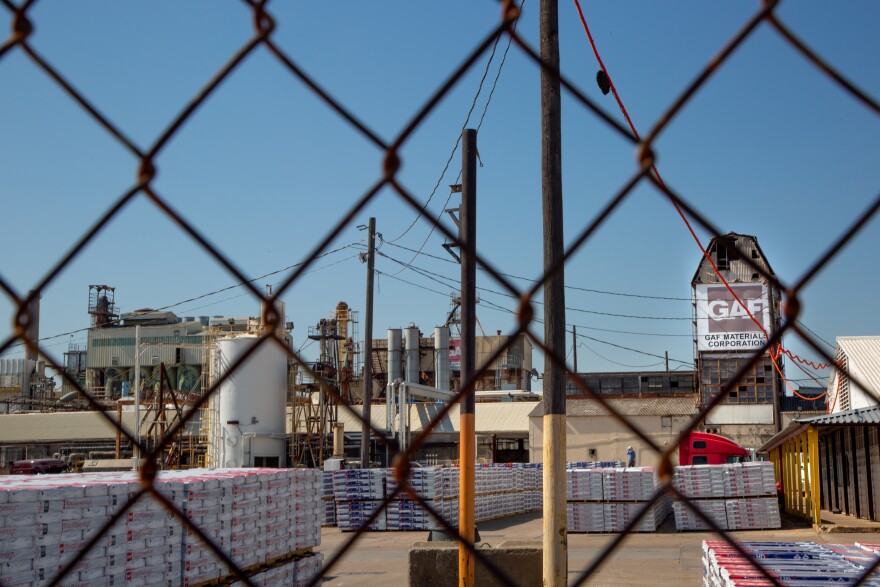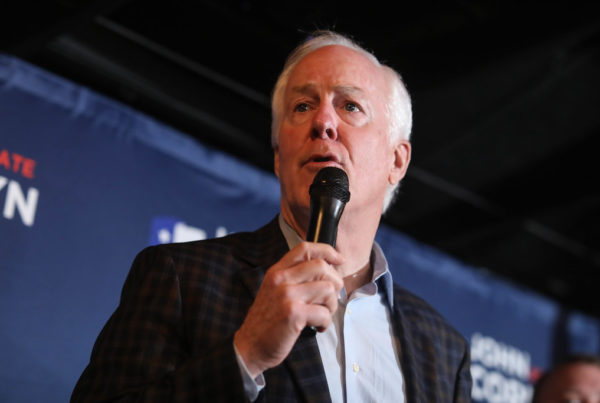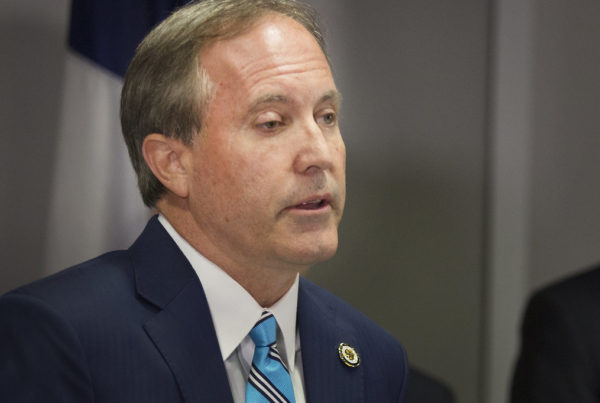From KERA News:
Janie Cisneros hits a bright blue and lime green paper maché piñata bearing white letters that read GAF. That’s the name of the company that operates a 75-year-old factory operating next to her house on Singleton Boulevard in West Dallas. The piñata swings from side to side while mariachi music plays.
Cisneros is celebrating the findings of a recent report that concluded the asphalt shingle factory should leave their predominately working-class Latino neighborhood because it’s polluting the air. The neighborhood group called Singleton United/Unidos prepared the report.
“That’s super dangerous. That is something that’s just unacceptable,” Cisneros said. “This is my neighborhood. There are elderly people. There’s a daycare, there’s schools, there’s churches.”
GAF has been a backdrop in Cisnero’s life for as long as she can remember.
“You get used to hearing palettes. You get used to hearing intercoms. Maybe I didn’t notice it growing up, but the smell was really strong,” she said.
For decades, communities of color have endured unwelcome neighbors — industrial facilities they complain can be smelly and even toxic.
Cisneros said West Dallas residents are saying vete ya — gotta go. They are fed up with the stench seeping into their homes.
“My eyes start watering.”
“I can’t breathe.”
“My nose is itching.”
“My stomach hurts from the smell.”
That’s what Cisneros said she heard growing up.
One key finding in the 100-page report called “Case for City Amortization of GAF”: The 75212 ZIP code, where Cisneros lives and GAF is located, has the worst air pollution in Dallas County.
The report also claimed GAF is releasing high amounts of sulfur dioxide into the air. Long term exposure can lead to coughing, shortness of breath, and asthma.
Cisneros attributes her father’s death and rapid health decline on the air pollution in her neighborhood.
GAF did not respond to specific questions about allegations of pollution at its plant.
A GAF spokesperson told KERA in an email: “We take great pride in our West Dallas operation and we stand committed to our West Dallas employees and the work they are doing to safely and effectively meet our customers’ needs.”
Cisneros said there is no escaping the fumes. She worries about future generations.
“I’m thinking about my little girl and how we just want to go play outside. But … sometimes the smell is really strong and I know it’s not safe,” she said.
Residents want the city to start a complicated legal process called amortization to close the GAF plant.
Essentially they would need to prove to the city that GAF is a health threat and is not following zoning laws. Then the City Council can request that the Board of Adjustmentconsider removing the business. The board is made up of Dallas residents that have been appointed by the council.
If the council doesn’t put in that request, a Dallas resident or property owner can submit a request for an amortization hearing. But they would have to pay a fee of $1,000.
GAF said it was unfortunate that amortization is being considered and that it intends to challenge any misconceptions and inaccuracies regarding its plant.
“For the last 75 years, GAF has been a responsible part of the growth and evolution of West Dallas, and we are supportive of maximizing the potential of the community,” a GAF spokesperson said.
Laura Beshara, a civil rights attorney in Dallas with the firm Daniel & Beshara, P.C. has represented Black and Latinx neighborhoods for decades.
Beshara said this fight for environmental justice is different from others she’s worked on because of the support from institutions like Paul Quinn College and local environment groups.
“That unity. That public pressure. That is a very different environment to that which existed 20 years ago,” she said.
Beshara said a key factor in the fight to kick GAF out is the city’s support.
“It’s time for the city to step up and apply its policies to all neighborhoods, not just the white neighborhoods. To apply its zoning policies that protect residential neighborhoods from harmful industrial uses,” she said.
Beshara said this case “fundamentally violates the city’s own policy” and city officials need to enforce zoning.
City Council Member Omar Narvaez represents West Dallas. He recently met with GAF representatives and told them he will stand by the neighborhood group.
“My biggest goal is to get West Dallas clean air,” he said.
Narvaez said GAF is ready to talk with the community.
“This is where West Dallas gets to lead. And we are showing the rest of the city — and eventually other communities outside of our city, the metroplex, in the state of Texas, and even across the nation — how to work on getting a bad element out of residential neighborhoods,” Narvaez said.
Back at the celebration, Janie Cisneros told the group of over 100 attendees she won’t stop until GAF leaves the West Dallas neighborhood.
“This is our time to say no more sacrificing Black and Brown community members. This is the time to say, ‘Hey City of Dallas,’ ‘Hey state of Texas,’ ‘Hey EPA, we are watching you.’ We know what you know. We need you to take action. You need to right the wrong,” she said.
GAF and city officials are meeting privately with Singleton residents and neighborhood groups Wednesday evening.
Singleton United/Unidos is ready to pursue amortization in August if GAF refuses to shut down.















